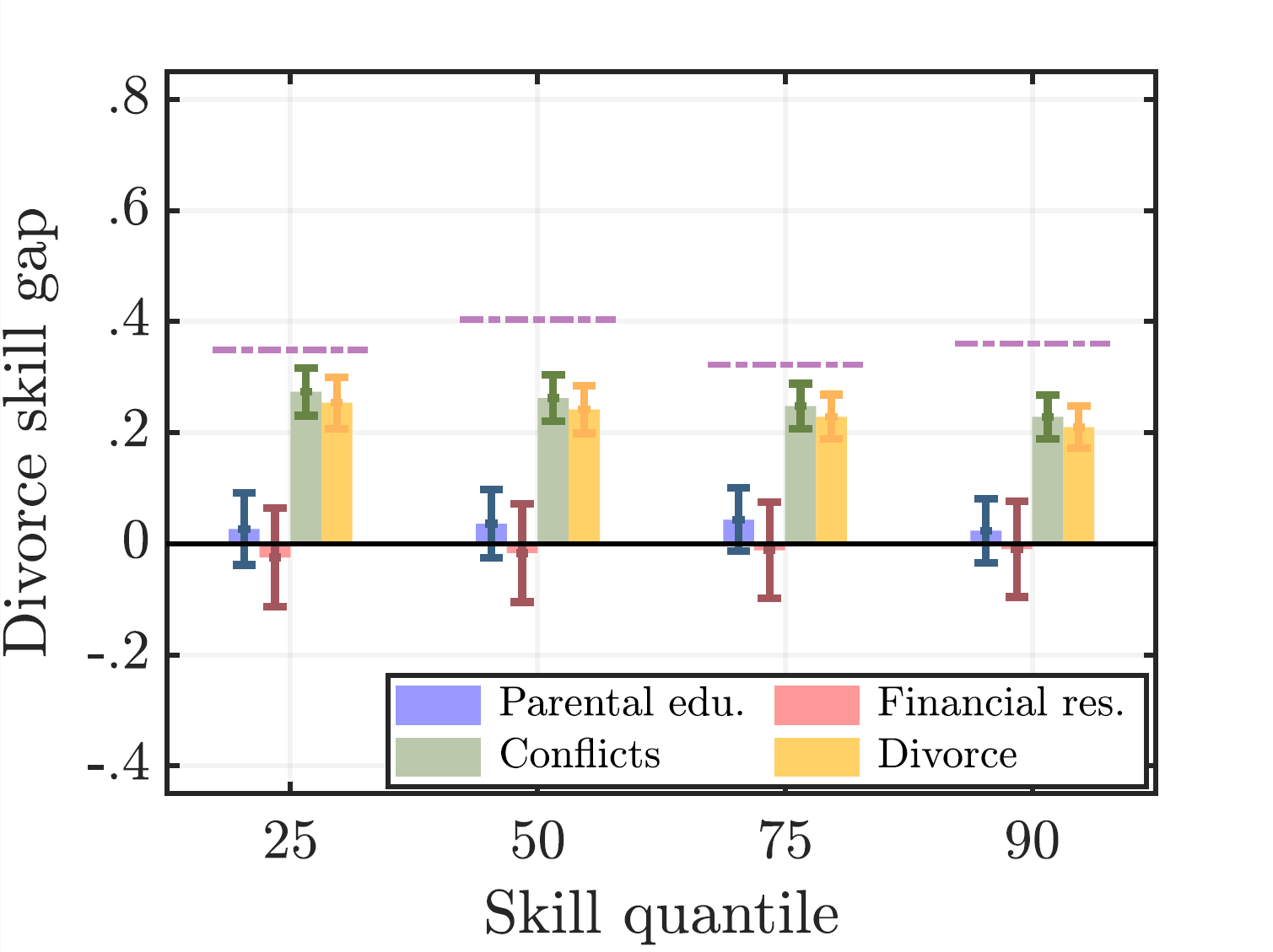Divorce, Parental Conflicts and Child Skills: A Story of Selection
November 2025 ● Gloria Moroni & Alexander Vickery ● Labour Economics
Abstract
This paper uses data from the UK Millennium Cohort Study (MCS) to study how parental divorce in early childhood affects a child’s skill development. We estimate a dynamic model of child skill formation that accounts for the endogenous nature of parental divorce including a measure of interparental conflicts. Our results show that the skill disadvantages among children of divorce stem almost entirely from the effects of selection. Here, skill gaps materialise due to disadvantages in household characteristics that also increase divorce risk. Inter-parental conflicts, parental education, and family financial resources emerge as key pre-divorce characteristics that explain divorce gaps in children’s cognitive and socio-emotional skills from age 3, through age 11. Inter-parental conflicts are often unobserved and overlooked in the literature, but our results demonstrate that they indeed play a major role, particularly for gaps in socio-emotional skills. Moreover, such gaps are found to be more pronounced among more vulnerable children, i.e. those with lower levels of socio-emotional skills.
Figure: Offsetting differences in observable characteristics between groups

citation
@article{MORONI2025102830,
title =
{Divorce, parental conflicts and child skills: A story of selection.},
journal =
{Labour Economics},
volume =
{97} ,
pages =
{102830} ,
year =
{2025},
issn =
{0927-5371},
doi =
https://doi.org/10.1016/j.labeco.2025.102830,
author =
{Gloria Moroni and Alexander Vickery}